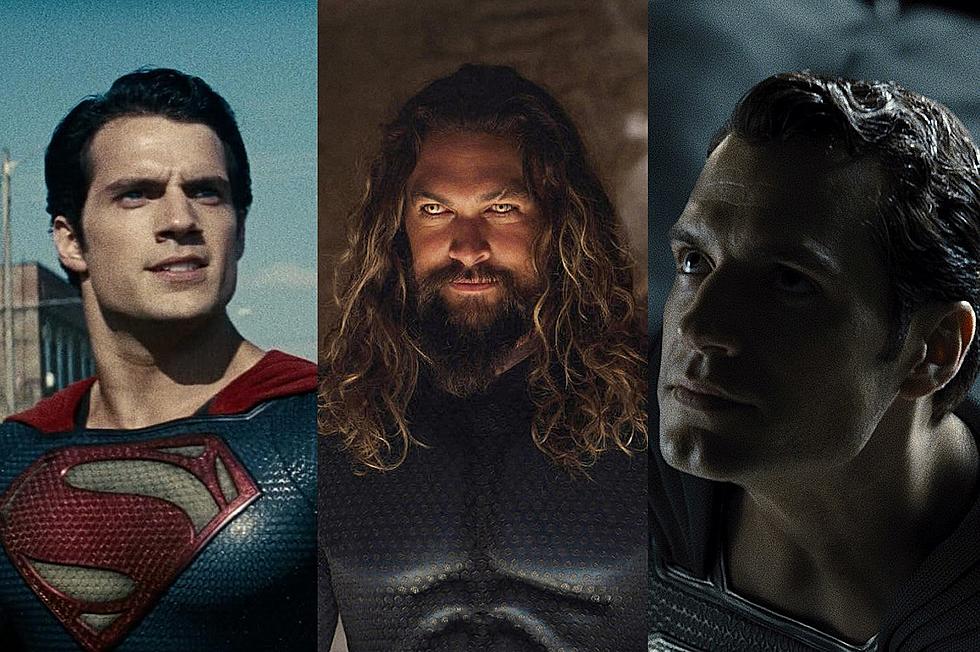
‘Professor Marston and the Wonder Women’ Review: Wonder Woman’s Secret Origin Is Not What You’d Expect
The Wonder Woman of this summer’s enormously popular blockbuster is brave, strong, noble, and — let’s be honest — a little vanilla. The original Wonder Woman comics were significantly kinkier; filled with lots of BDSM imagery and themes. They were a direct reflection of the values and theories of their creator, a psychologist named William Moulton Marston, who believed that women were superior to men and wanted his comics to help young boys learn to respect the opposite sex. Marston also helped invent the lie-detector test and spent many years in a polyamorous relationship with two women. You could say Marston lived a life stranger than fiction, but I don’t know; he wrote some pretty strange comic books.
His stories’ none-too-subtle feminist subtext (not to mention the repeated images of bad guys getting tied up and dominated by Wonder Woman) eventually landed Marston in hot water with the watchdog groups trying to police, or shut down, the comics industry of the 1940s. Professor Marston and the Wonder Women begins there, with Marston (Luke Evans) undergoing a lengthy interrogation by the leader of one of these groups (Connie Britton); their back-and-forth becomes the frame around the origins of Marston’s unusual three-way domestic partnership which, in turn, directly inspired the creation of Wonder Woman.
Marston’s wife Elizabeth (Rebecca Hall) is at least his intellectual equal, but Harvard refuses to give her a degree because of its strict men-only policy. Fiery, independent, and delightfully vulgar, Elizabeth helps Marston with his books and experiments, and insists she is impervious to sexual jealousy — a claim Marston quickly tests when he falls for one of his students, Olive Byrne (Bella Heathcote). Elizabeth, who gives the versatile and underused Hall the platform for one of her best performances in years, eventually permits Marston to take Olive on as a teaching assistant. Together, the trio make the discovery that leads to the creation of the systolic blood pressure test that powers the modern polygraph.
Along the way, they also fall in love. Given that Marston, Elizabeth, and Olive’s relationship involves bondage, role play, and assorted other fetishes, you might expect (or maybe even want) Professor Marston to morph into a salacious, taboo-busting romp. Instead, director Angela Robinson shoots Professor Marston like your standard issue biographical film, with plenty of slow-motion photography, tasteful dissolves and gauzy, golden images of the stars in various degrees of undress. In a way, though, Robinson’s less-edgy aesthetic is even more subversive than graphic sexuality. By treating the Marstons’ lovemaking the same way arthouse movies have treated heterosexual couples for decades, she refuses to portray them as aberrant or abnormal. That’s particularly important because of the discrimination the trio faced in their lifetime, which factors prominently into Professor Marston’s second half.
In fact, the sexiest scenes in Professor Marston aren’t the sex scenes; they’re the impromptu lie-detector tests between the central trio as they experiment with their new device — and each other. The only way to determine whether the detector works, they realize, is to ask personal questions that produce truths and lies that are intensely uncomfortable. With delicate editing by Jeffrey M. Werner and very clever sound design (we hear the lie detector’s needle scratching along much more than we see it), these quiet little scenes become both immensely dramatic and immensely erotic.
After the central love triangle leaves Harvard and settles into an unconventional home life, the film loses a bit of steam. Like so many biopics, events get compressed and character motivations get rushed. After using the Britton character to set up the story, it’s never made entirely clear what is at stake for Marston in their conversation — and there’s no resolution to her inquiry whatsoever. The film’s third act is almost as messy as Marston’s final years, and ultimately it’s a lot less fun watching the professor and his lovers actually create Wonder Woman than it is seeing how their style choices, personal beliefs, and sexual tastes organically seeded the inspiration for this beloved character (like Olive’s taste for chunky silver bracelets inspiring Diana’s favorite bulletproof fashion accessory). Still, Professor Marston makes for a fascinating and tender companion piece to Patty Jenkins’ Wonder Woman. You’ll certainly never look at Diana’s Lasso of Truth the same way again.
More From ScreenCrush









